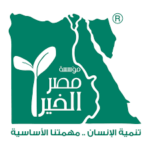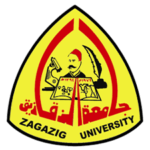Wayana’s Achievements
Wayana International Foundation For Awareness and Integration of People with Disabilities
It is one of the leading foundation in the field of community awareness, integration and empowerment of people with disabilities. Since its inception, the foundation has taken unprecedented steps in several areas, including:
Legislation
- The first institution that sought to issue the first ministerial decision for inclusive education in general education schools and hosted all government agencies, experts, specialists, jurists, university professors, and civil society organizations concerned with the education of people with disabilities in workshops extending until the issuance of Resolution 264 of 2011 to implement educational integration in schools.
- The first institution that sought to establish a National Council for Disability Affairs, and all stakeholders with disabilities gathered around it to implement it until it was completed. The first Secretary-General of the Council was Mrs. Dr. Hala Abdel Khalek, Chairman of the Foundation’s Board of Trustees.
- The first institution to request a fatwa for the marriage of people with disabilities with Down syndrome, and the fatwa was issued after the efforts of the institution in 2015 by the Egyptian Fatwa House.
- The Foundation participated in developing the National Plan for Education, focusing on education for people with disabilities.

Local and international partnerships and conferences
- The first foundation to conclude a cooperation protocol with the American University of Kensaw in the field of training specialists and teachers dealing with persons with disabilities in 2006.
- The first foundation that sought to exchange experiences of integration in education from the United States and Canada and organized a conference in Cairo to present the successful experiences of inclusive education, in 2009.
- The first foundation sought to establish a university entity for disability sciences in cooperation with Ain Shams University and with the Misr El Kheir Foundation to implement the Afaq Academy, but the idea was not implemented, and after several years the Ministry of Higher Education established the Faculty of Disability Studies and Sciences at the Universities of Zagazig and Beni Suef.
- The first foundation to organize a regional conference for businessmen with the International Labor Organization to employ persons with disabilities.
- The first foundation to organize an employment forum for people with disabilities at Cairo University in a celebration honoring students and graduates with disabilities (Loyalty Day) in 2010, and honoring the outstanding among them through a competition for the best research and presenting in-kind prizes in 2009.
- The first foundation that sought to establish a project to treat children with disabilities through Neurofeedback, and held the first Neurofeedback treatment conference and invited doctors and specialists to attend, in 2011.
- The first Foundation to conclude cooperation protocols with private sector companies to employ people with disabilities, such as (B.Tech – Chipsy – Pepsi – Vodafone – Savola – Sanofi – Olympic Group – TA Telecom – Union Tech – Aramex).
- The first foundation to implement an integrated project for educational integration that includes (training – awareness – equipping a resource room – evaluating students with disabilities – supporting institutions working in educating people with disabilities and raising their efficiency) educational integration through a grant provided by the Misr Al-Khair Foundation to 30 education schools. As well as a cooperation protocol with the Ministry of Education in government schools in the governorates of (Beni Suef – Fayoum – Aswan).
- The Foundation, in cooperation with Plan International, contributed as a technical partner to the Tamkeen project, where it trained trainers on how to deal with people with disabilities in order to qualify young people for the labor market.
- The Foundation, in cooperation with Plan International, contributed as a technical partner to the Tamkeen project, where it trained trainers on how to deal with people with disabilities in order to qualify young people for the labor market.
- The Foundation contributed to the project to develop the poorest villages by developing the Kafr Hamid area through a grant provided by B.Tech through (building roofs – bathrooms – distributing blankets – distributing heaters).
- The Foundation contributed to the development of the leprosy colony with a grant from the Al Suwaidi Group to illuminate the colony.













